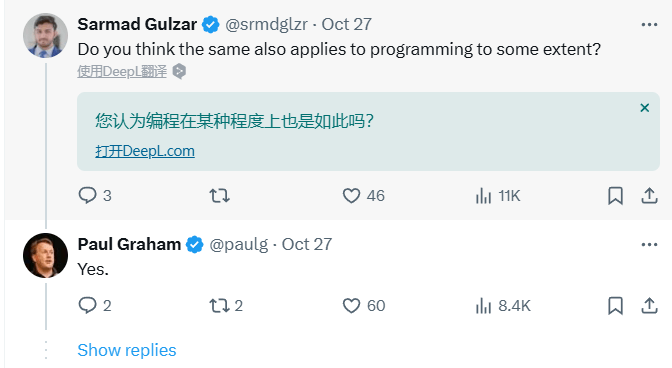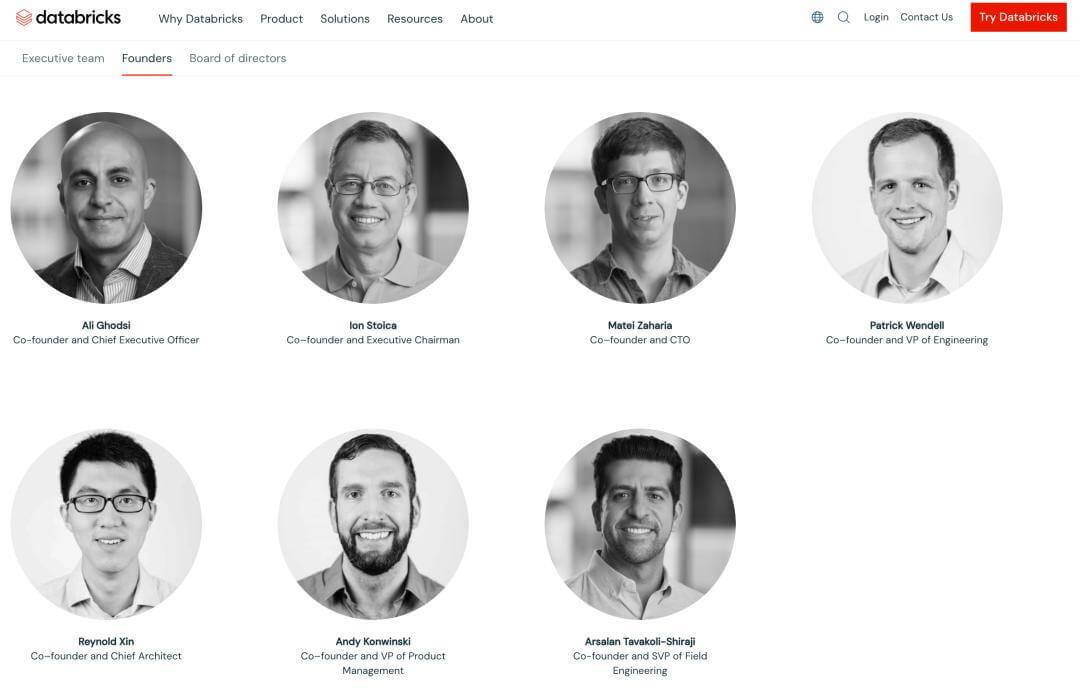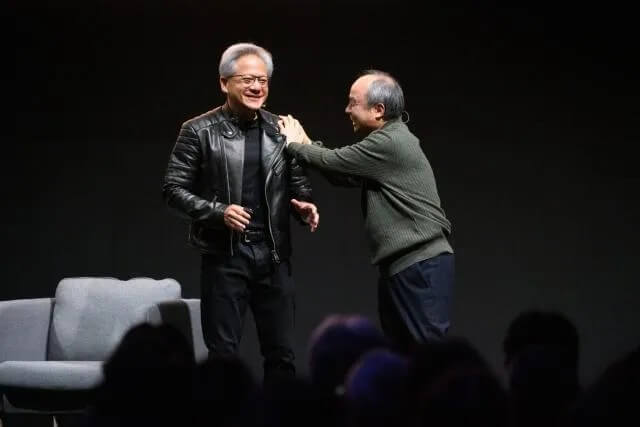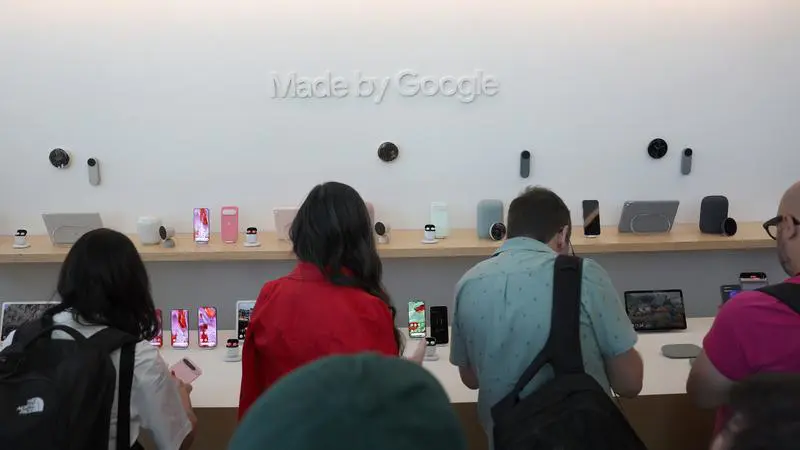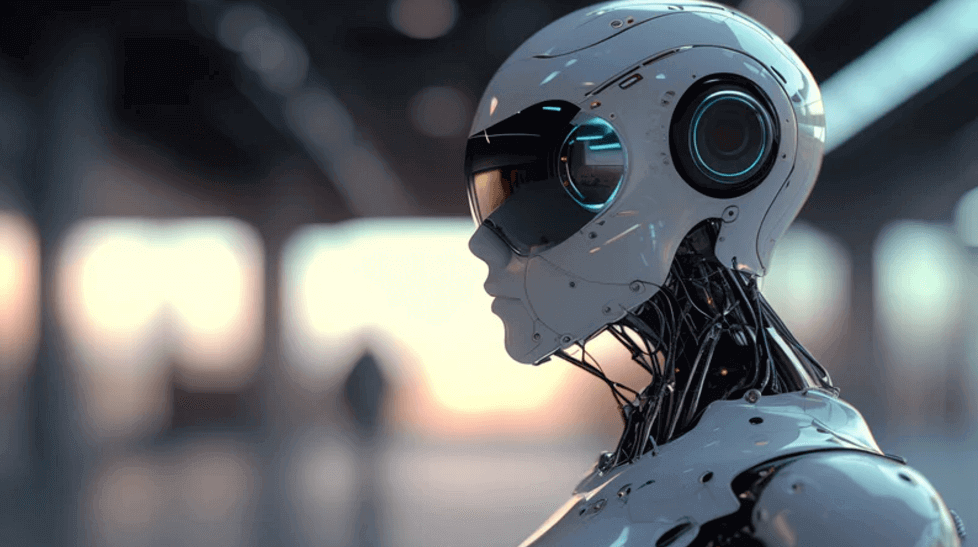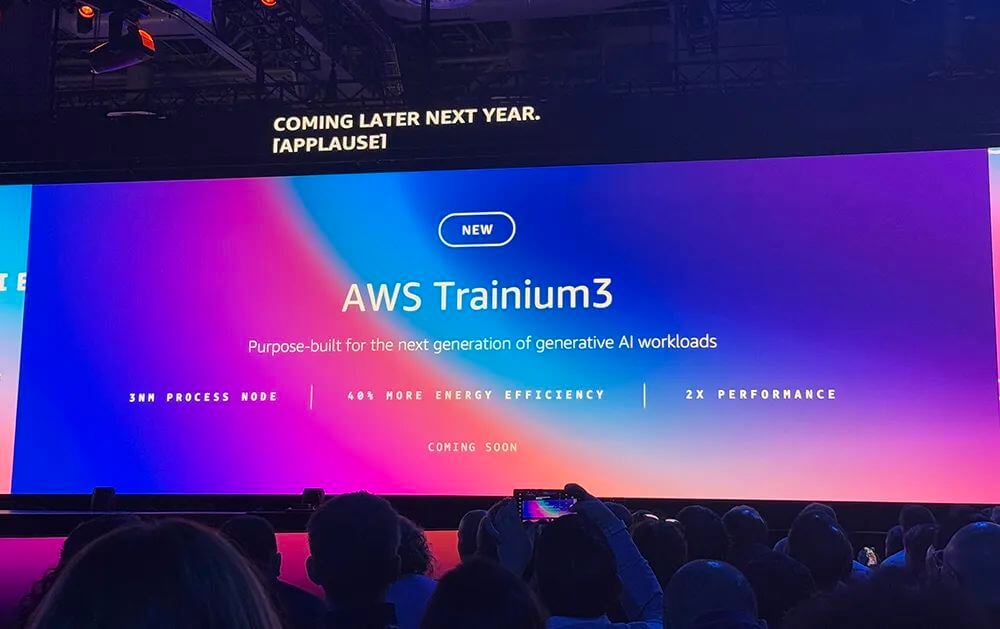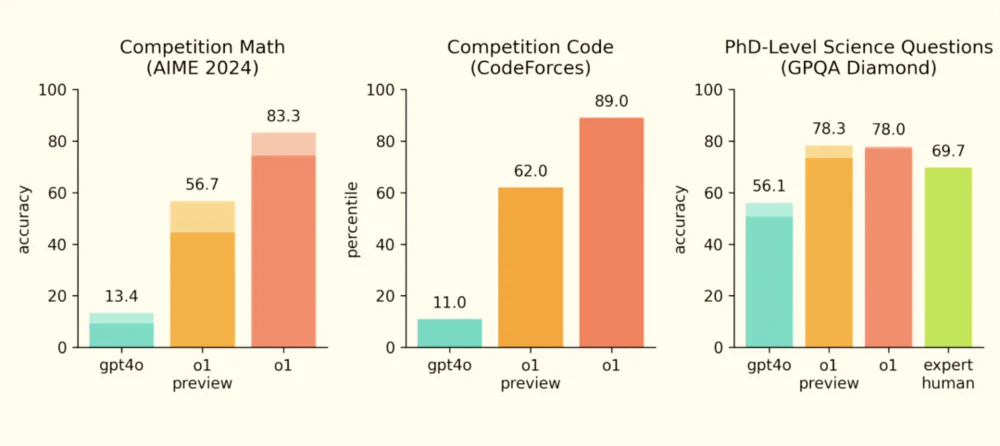Google has launched an internal AI model named "Goose" to help employees code and develop products more efficiently. This model is reportedly trained on 25 years of engineering experience, encapsulating the wisdom of countless programmers. Google's Q3 financial report is not the only strong indicator; during the earnings call, the CEO made a shocking revelation!
He pointed out that over a quarter of new code at Google is generated by artificial intelligence!
The introduction of this news has reignited discussions about the potential unemployment of programmers. Phrases like "AI has fundamentally changed Google" and "the programming industry is in jeopardy" are everywhere.
The fact that AI is writing over 25% of the code is surprising. However, does this mean the company could lay off about a quarter of its programmers?
It’s worth noting that Google previously promised that AI would not take away jobs from Googlers (which hasn't happened yet), but there is still a sense of anxiety.
Some netizens are even convinced that the actual number is higher and that Google may be “cooking the books.”

Others expressed shock, stating, "25% is already here; how far can the other 75% be?"

The attention surrounding this issue quickly elevated discussions on Hacker News.

Many current and former Google employees have come forward to refute the CEO's claims, arguing that the data is greatly inflated!

What Did Google Employees Say About the Mysterious “Goose”?
1.Google Employee: "25% is exaggerated; the engineering work is still done by us."
Let's first look at the hard facts about Goose. As a product distilled from 25 years of Google programming experience, is it truly a "magic pill" that surpasses existing AI programming tools?
It probably isn’t! According to reviews, Goose's performance barely matches Copilot, and may even fall short.
As a Google employee who just finished work, I am one of those who writes what is labeled as "AI-generated code." For example, if I write "function getAc...," the Goose will smartly complete it as "function getActionHandler()" and might suggest the correct parameters and a decent jsdoc comment.
So basically, it is a useful productivity tool, but it doesn’t do any engineering design. It might be as good as Copilot, or even slightly worse. (Though I haven’t used it recently.)

Another former Google employee boldly questioned the accuracy of the numbers—suggesting that Google might have included the empowerment of AI tools from the 1.0 era to arrive at the 25% figure!
"I also worked at Google (until last Friday). I agree with you. My thought is that this statement is clearly an exaggeration; they likely included fully automated CL/PR tools that have existed for over a decade as 'AI-generated.' I previously stated that if a team of 10 and a team of 8 are equally efficient using tools like Copilot, then I think saying 'AI replaced 2 engineers' is fair. More importantly, if this claim were true, technical leaders would say so.
Copilot and its clone products have existed long enough, with clear evidence, and no one says, 'We’ve replaced X% of the workforce with AI'—therefore, my assertion is that using Copilot hasn’t significantly accelerated development."

Taking a step back, even if the 25% figure is accurate, what AI can do is still quite limited, as writing code is far from being the entirety of a programmer's job!
Because code ≠ engineering.
I believe writing code is almost a form of relaxation, and it only occupies a small portion of the development work. I am not particularly interested in merely increasing productivity through writing code snippets. I find it more interesting to improve maintainability, robustness, and other quality metrics—not focusing on the quality of AI outputs but on the actual quality of the codebase.

Additionally, the CEO acknowledged that all AI-generated code must undergo "manual" review and acceptance by engineers.

A software engineer with over 20 years of experience expressed: "The thought of reviewing AI-generated code terrifies me!"
"As a programmer with over 20 years of experience, this is truly frightening. I’d accept it if people said I simply have 'get out of my territory' syndrome, but the idea of letting an LLM write/move a lot of code seems utterly irresponsible. Whenever I sit down to write code, whether it's a large implementation or a small function, I consider what challenges others (or my future self) will face when interacting with the code. Is it concise and clear? Is it too clever? When making modifications, is it too easy to introduce a subtle bug? Have I made it obvious through comments or other means that X depends on Y in a risky way?
… I do these things not out of desire, but because all non-trivial code has many subtleties; that's the essence of code. Therefore, the thought of opening a codebase pieced together by AI frightens me. Subtle vulnerabilities and errors will be distributed throughout the code, rather than just in the areas where the writer is less capable (which is usually the case). The whole piece sounds like a mess. Change my mind."

2.Collective Pressure from Big Companies: Urgently Show AI Returns
The CEO stated that Google's AI investments are "paying off and yielding success," with AI technology driving strong performance in Google's search and cloud computing sectors.
In fact, Google’s investors need him to draw this conclusion. The enthusiasm for AI among capital is gradually returning to rationality, and everyone is eager to understand how AI technology can be translated into actual profits, especially after burning through significant funds.
From this perspective, Google is also more likely to "round up" this 25% to secure funding for continued AI research and development, rather than intentionally downplaying this number out of fear of scaring off audiences.
If AI accounts for 25% of the code, it means achieving higher outputs at the original labor cost. This translates to profit for the company.
If the company's ambitions have not yet been realized, there’s no reason to reduce the workforce from 10 to 8, while keeping output constant; with the aid of AI, you could retain 10 people while achieving the output of 12.

Not only Google but also other tech giants heavily investing in AI are facing the same pressure.
Meta recently reported a “net profit of $15.7 billion, up 35%” for Q3, yet its market value plummeted due to insufficient AI gains.
Zuckerberg could only reluctantly admit that the news about Meta investing more in AI infrastructure “might not be what investors want to hear right now.”
However, he sincerely stated that the company will continue to invest, saying, “I just think the opportunities here (in AI) are really significant.”
3.In the Future: Will Programming Become an Elite Pursuit?
We shouldn't rush to conclude that AI will replace programmers based on Google’s 25% figure.
However, what changes might occur if we stretch the timeline to 5 or 10 years?
Previously, NVIDIA CEO Jensen Huang made a shocking statement: he no longer recommends that children learn programming! From his perspective, studying biology, education, manufacturing, or agriculture might be more promising choices.
Cai Haoyu, the former chairman of miHoYo, echoed Huang's sentiments, previously posting on LinkedIn to earnestly advise ordinary game developers to change careers sooner rather than later. He stated that AlGC has fundamentally changed game development; it’s just that this phenomenon requires time to fully unfold.
“In the future, it will logically make sense for only two types of people to create games: 1. The top 0.0001% of elite talents who have profound understanding and outstanding design skills, forming elite teams to create unprecedented things. 2. 99% of amateurs who can create a game on a whim to satisfy their ideas.”
However, not all viewpoints are as “radical” as those expressed by these two big names. Future opportunities will not solely belong to geniuses or those with sudden insights.
Last week, Y Combinator founder Paul Graham published a blog post titled "To Write or Not to Write," in which he stated, “AI has changed everything. Almost all writing pressure has disappeared. In school and at work, you can let AI take over.
The result will be a world divided between 'writers' and 'non-writers.' There will still be some who write because some people enjoy writing. However, the middle ground between those who can write well and those who cannot write at all will disappear.
Before industrialization, most people's jobs made them physically strong. Now, if you want to be strong, you have to go to the gym. So there will still be strong people, but only those who choose to go to the gym.
Writing will be similar. There will still be smart people, but only those who choose to be smart.”
Someone asked, "Is programming the same?"
Paul Graham replied, "Absolutely!"
